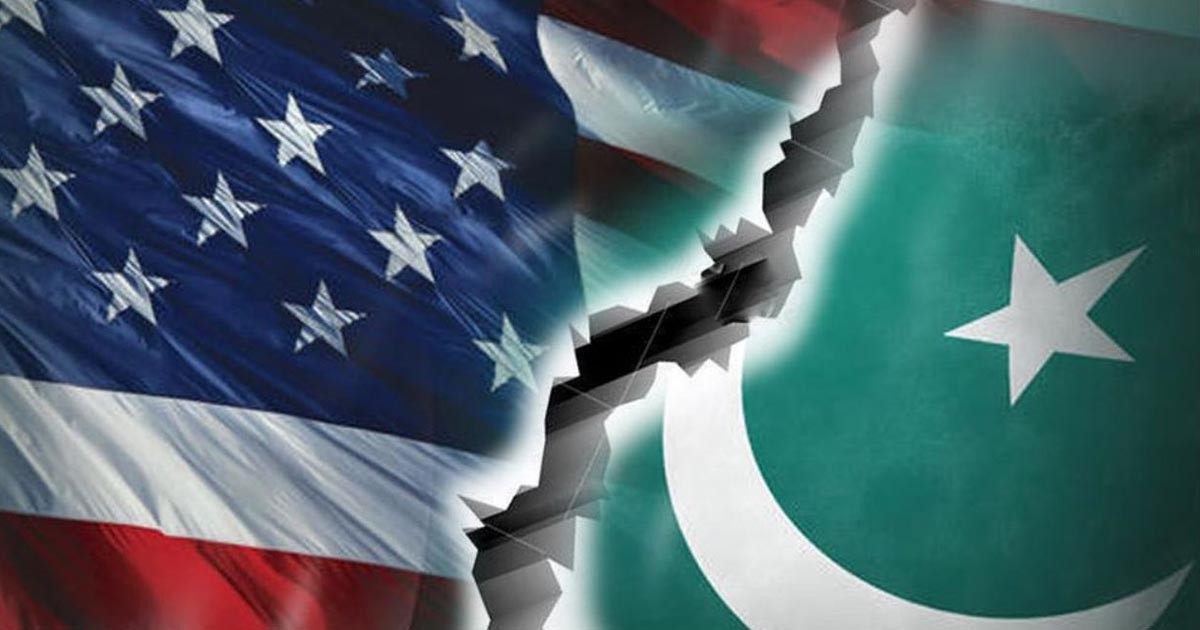The US is indeed in the business of changing regimes. It can do so by directly invading a country – as it did in Iraq and Afghanistan; with the help of allies, like in Libya; supporting insurgencies – the Syrian example; or through clandestine maneuvers that target a country’s fault lines. Since the environment is not always conducive to the use of overt means, a covert approach is the preferred option. Of course, they take a long time and need to be delicately steered, but spare the cost of a military operation and afford plausible deniability – and escape embarrassment in case the project turned out to be a dud.
Obviously, the US could not go around toppling every government – and there are a whole lot of them – that survives or thrives on anti-Americanism. But then it’s equally obvious that some unpopular regimes or those in trouble would blame the “Great Satan” for their disconcertment. Zulfiqar Ali Bhutto famously used this card in 1977 when after a rigged electoral exercise, the opposition mobilized against him.
Read more: Afghanistan: Implications of a global failure for US and Pakistan! – Gen Tariq Khan
The ploy backfired
Then there are others who believe that the immense American power was best exploited by getting on its right side – and if and when in trouble, for whatever reason, by sending an SOS to Washington. Faced with a no-confidence-motion in 1989, the daughter Bhutto appealed to the then-American President, the elder Bush, to save democracy in Pakistan.
Nawaz Sharif 1999 sent his brother to seek Clinton’s help against a likely military coup. And Musharraf in September 2008 was counting on the Amis to pull his chestnuts out of the fire. None of them worked.
Now that Imran Khan has decided to give the senior Bhutto’s model another shot, let’s see if his claim that the Americans were after his blood had any merit. One may start with any casus belli that was serious enough for the US to try and get rid of his government!
It couldn’t be the fiasco in Afghanistan
Pakistan’s policy to ensure that the Taliban retained the ability to frustrate American designs in Afghanistan, goes back nearly two decades – well before Imran was anywhere close to the corridors of power. And till he called on Putin on the eve of the Russian invasion of Ukraine, one does not recall if the PTI-led government caused any discomfiture to the Big Boss. Over the last six weeks too, the only acts of ours that did not exactly please Biden’s heart were some odd abstentions when the UN called us to line up against Moscow. But there too we had the company of some American blue-eyed countries like India and Israel.
Read more: Trilateral summit between Afghanistan US and Pakistan: Will the afghan war finally end
Let’s nevertheless posit that it was our stand on the Ukrainian crisis that provoked the US to come gunning for Imran. The problem with this assumption is that the opposition to his government, allegedly sponsored by the sole superpower, predates the present war in Europe by months if not years. However, it was still possible that Imran’s political rivals got US support at some opportune time and on some mysterious grounds. In that case, this act of the US establishment in which the threat of a regime change in Pakistan was allegedly dispensed, came at a very silly time. By the beginning of March, the Opposition’s move to bring down the PTI’s government was not only well on its way but in fact looked in pretty good shape.
If at that stage a US Assistant Secretary of State were to warn our Ambassador in Washington that POTUS had decided to show Imran the door, it served only one purpose: subvert the credentials of the no-confidence-move. Wasn’t it wiser to keep quite and let the “American supported movement” come to its “desirable” end?
PM Khan’s next step
Now that IK and his team have thwarted the move in the National Assembly on grounds that look highly suspect, I may have no idea what the next steps in the Supreme Court or the national elections three months down the line would bring about, but strongly suggest that some of us look at the significance of a rather unusual statement made by the incumbent Army Chief.
When Bajwa took a position on the Ukraine crisis, not quite in line with the government’s policy; was it to make some reconciliatory noises to placate the Yanks; express his disagreement with the IK’s conspiracy thesis, or was it a precursor to bad tidings for his once-favorite prime minister. And while we are at it, we might as well think about what the US was next likely to do – both if it was sponsoring the efforts to topple IK’s regime, or has been wrongly blamed for it.
Read more: US and Pakistan strive to improve relations
Since IK has taken a page out of the ZAB’s book, he would do well to recall that his hanged predecessor had once labeled their common nemesis as elephants. The species is known for its remarkable memory.
Lt Gen. (r) Asad Durrani is a retired 3-star rank general in the Pakistan Army and presently a commentator and speaker. He is the author of “Pakistan Adrift (2018)” and “Honour Among Spies (2020)” and a prominent defence columnist. He served as Director-General Inter-Services Intelligence (ISI), DG Military Intelligence, and as Pakistan’s Ambassador to Germany. The views expressed in this article are the author’s own and do not necessarily reflect the editorial policy of Global Village Space (GVS News).














